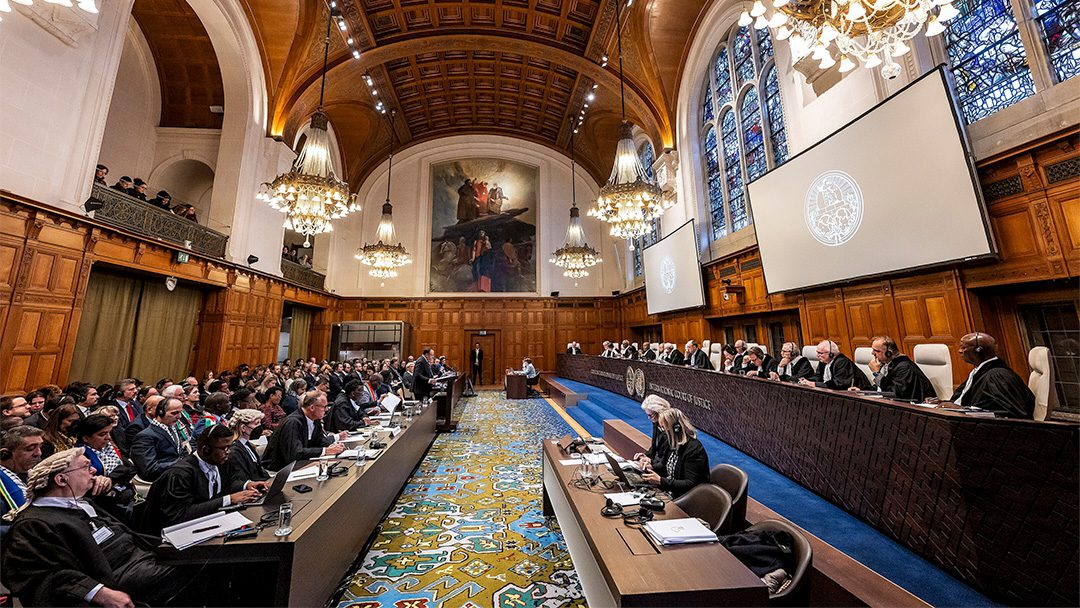In the last couple of articles we covered the subject of God’s will which for many believers is complex and hard to understand. We hear all that time that God has a plan for our lives and that this plan is His will for us, but what does that mean?
Well, the will of God can be segmented into four categories and by understanding each of them, we get a better understanding of His will and what it means for us personally.
The four categories are:
- God’s ‘decretive’ will, which we’ve already looked at
- God’s ‘preceptive’ will, which we looked in the last article
- God’s ‘permissive’ will, which we’ll look at in this article
- God’s ‘sovereign’ will (which is almost the same as His decretive will but more complex) so we’ll save it for last!
God has revealed His decretive will, which proves His divinity and cannot be changed or altered by the efforts or scheming of men. What God decrees will happen, will happen.
God has also revealed His preceptive will to us through His Word so that we’ll understand what His expectations are of His people with regard to conduct, conversation, behaviour and attitudes both toward Him and others.
God has also revealed His permissive will to us in that He allows human beings to either submit to Him or rebel against Him, which allows human beings to both learn from those choices—be they good or bad—and at the same time making human beings accountable and responsible for those choices.
Learning to deal with the consequences of our choices is an incredibly important part our sanctification—God’s Holy process of changing or conforming us to be more like Him. It’s through the circumstances of our lives and the results of our choices and actions that we develop character, we grow in maturity and walk through the refining process and this goes hand in hand with the preceptive will of God.
It’s really important to point out here that God is sovereign (which we’ll attempt to unpack next time), it’s equally important to understand that while God ‘allows’ or ‘permits’ evil to be done, He absolutely, categorically does NOT sanction it.
If you make a choice and it doesn’t work out, you haven’t stepped out of God’s will, you’re in the process of working through it…
When mankind commits acts of sin or evil, and we say that God ‘permits’ it to happen, what we’re really saying is that God doesn’t directly intervene to prevent evil from happening. That can be really hard to grasp, but there’s a reason for it.
God’s permissive will is to basically allow human beings to make choices, to either act or react according to God’s Word or to reject it and act or react according to their own preferences and then, to live with the consequences of those actions or reactions, and be accountable for them.
What do we know is the will of God that we are accountable for?
We know it’s God’s will for man to be saved.
1 Timothy 2:3-4, ‘This is good and acceptable in the sight of God our Saviour, who desires all men to be saved and come to the knowledge of the truth.’
2 Peter 3:9, ‘The Lord isn’t slow about His promise as some count slowness, but is patient toward you, not wishing for any to perish but for all to come to repentance.’
God desires the salvation of all men, and yet some reject and deny Him, even His existence and because of that denial, they’re without excuse for rejecting Him. We know that the process of salvation is 100% a work of God, but our denial of Him is our responsibility.
Romans 1:20, ‘For since the creation of the world His invisible attributes, His eternal power and divine nature, have been clearly seen, being understood through what has been made, so that they’re without excuse.’
This shows us—and if you look out your window to the natural world around you—you can see clearly that God is real through His creation.
If you reject God, God will permit you to reject Him, but you alone will be responsible for that rejection.
It’s God’s will that we be sanctified, (1 Thess 4:3-7); it’s God’s will for us to be submissive, (1 Pet 2:13-15); it’s God’s will that we endure suffering for His sake, (Phil 1:29-30, 2 Tim 3:12).
But what about God’s permissive will in our day to day lives.
Let’s say we have a decision to make, important or otherwise, how do we know God’s will for those decisions.
The best process for making those decisions is firstly through prayer, then searching God’s Word for examples and precedents and seeking wise council from others who are godly examples of righteous living and successful choices they’ve made themselves. When believers make their daily decisions to work in a particular job, buy a particular car, marry a particular person, those choices are God’s permissive will for their life, as are the consequences of those choices and He’ll use them to purify and refine you, regardless of whether the consequences are favourable or unfavourable. If you make a choice and it doesn’t work out, you haven’t stepped out of God’s will, you’re in the process of working through it and becoming more like Him as the circumstances refine you. The end result will be to stretch you, mature, sanctify and transform you through perseverance.
That’s God’s permissive will for you.
In Romans 5:3-5, Paul is explaining the fruit that comes from persevering through tribulation, and while we’re not specifically talking about tribulation, rather our own personal choices, the process of refinement is the same.
‘We also exult in our tribulations, knowing that tribulation brings about perseverance; and perseverance, proven character; and proven character, hope; and hope doesn’t disappoint, because the love of God has been poured out within our hearts through the Holy Spirit who was given to us.’
So when God permits or allows us to make decisions, He’s allowing and permitting us to also live with the consequences of them and He uses them to refine us—and this is His will for us.
Shalom,
Mandy












0 Comments